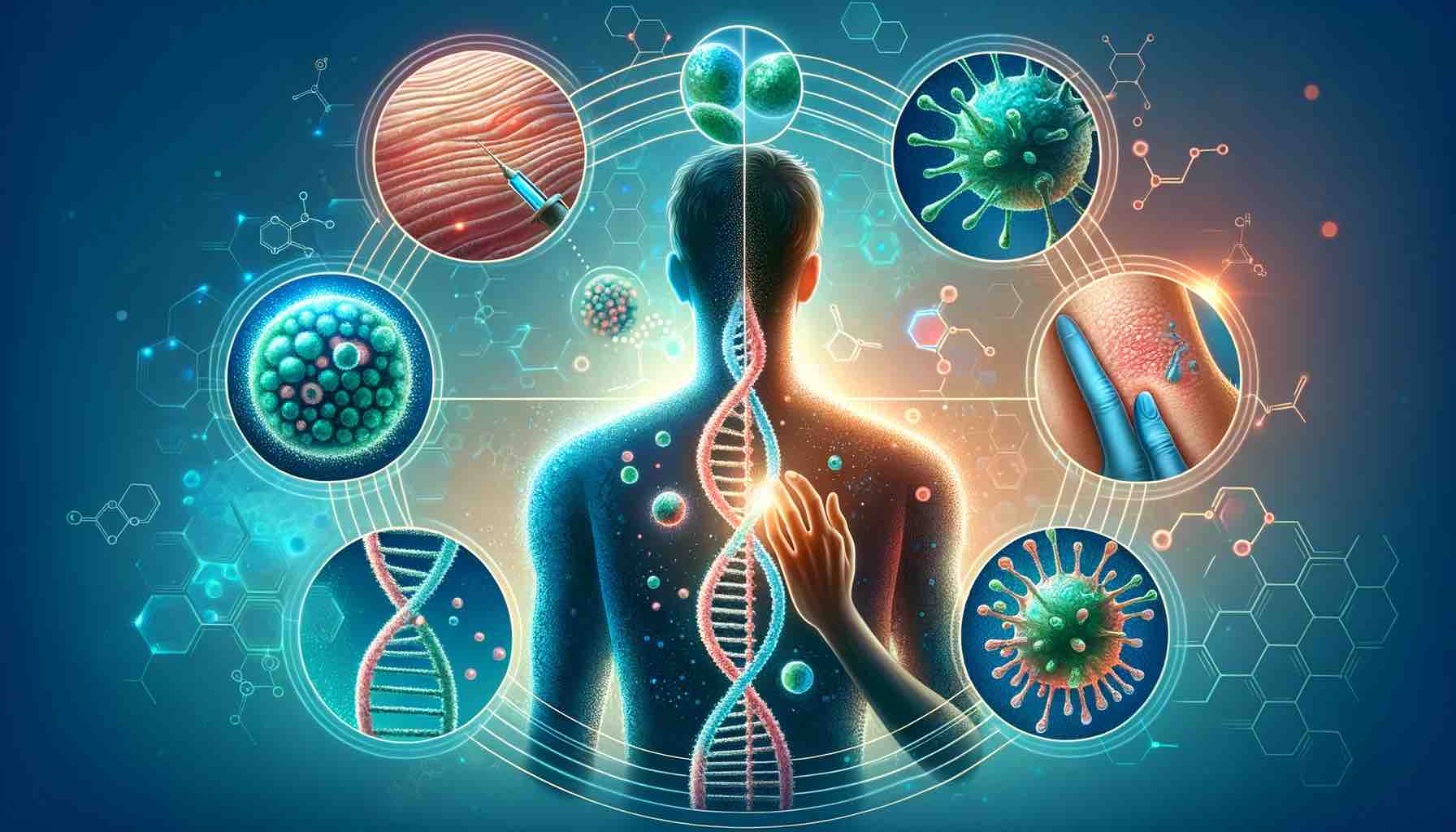
Vitamin D, often referred to as the “sunshine vitamin,” is a cornerstone of our health. It’s not just about bone strength; this vitamin has a hand in everything from our immune system’s robustness to the regulation of our mood. As modern life increasingly pulls us indoors, away from the natural sunlight that our bodies use to produce Vitamin D, deficiencies are becoming more common. This article will explore 14 signs that you might be running low on this essential nutrient and offer actionable advice on how to address it.
1. Fatigue and Tiredness:
Details: One of the most overlooked symptoms of Vitamin D deficiency is a lingering sense of fatigue. It’s not the usual end-of-day tiredness we all feel. Instead, it’s a profound exhaustion that doesn’t go away with sleep. This fatigue can be so severe that it hampers daily activities. Vitamin D plays a role in energy production in our cells. When there’s a deficiency, cellular processes can be impaired, leading to this overwhelming sense of fatigue.
Management: The first step is to get your Vitamin D levels checked. If you’re deficient, your doctor might recommend supplements. Additionally, try to get at least 20 minutes of direct sunlight every day. Remember, sunscreen can block Vitamin D production, so balance the need for sun protection with getting adequate sunlight. Incorporate foods rich in Vitamin D into your diet, such as fatty fish, mushrooms, and fortified foods.
2. Bone and Back Pain:
Details: Our bones are continually undergoing a process of breakdown and renewal. Vitamin D is crucial in this process because it helps our guts absorb the calcium that our bones need to stay strong. When Vitamin D levels drop, calcium absorption decreases, leading to weaker bones and, consequently, pain. This pain is often most noticeable in the lower back and can range from a dull ache to sharp bursts of pain.
Management: Along with Vitamin D supplements, it’s essential to ensure you’re getting enough calcium in your diet. Dairy products, green leafy vegetables, and fortified foods are excellent sources. Weight-bearing exercises, like walking or weight lifting, can also help strengthen bones. And don’t forget the importance of Vitamin D in milk – a double whammy for bone health.
3. Depression or Mood Swings:
Details: The brain is a complex organ with numerous processes occurring simultaneously. Vitamin D receptors are found throughout the brain, indicating its importance in mental health. There’s a growing body of evidence suggesting a strong link between low Vitamin D levels and depression. The exact mechanisms aren’t fully understood, but it’s believed that Vitamin D can influence the neurotransmitters that affect our mood.
Management: If you’re feeling persistently down or notice significant mood swings, it’s essential to speak with a healthcare professional. They can assess whether Vitamin D deficiency might be a contributing factor. Regular exposure to sunlight, a balanced diet, and potentially Vitamin D supplements can help. Engaging in outdoor activities, even something as simple as a daily walk, can also have mood-boosting benefits.
4. Impaired Wound Healing:
Details: When you get a cut or scrape, your body jumps into action to heal the wound. Vitamin D plays a pivotal role in this process. It’s involved in fighting off infection and reducing inflammation around the wound. If you’ve noticed that your wounds take longer to heal than they used to, or they become infected easily, a Vitamin D deficiency might be the underlying cause.
Management: First and foremost, maintain cleanliness around any wounds to prevent infections. Incorporate foods rich in Vitamin D into your diet. Foods like fatty fish, eggs, and fortified cereals can help. If you’re concerned about your wound healing capabilities, consult with a healthcare professional who might recommend a Vitamin D supplement or a topical ointment enriched with Vitamin D.
5. Bone Loss or Osteoporosis:
Details: Vitamin D’s role in calcium absorption is crucial for maintaining bone density. As we age, bone density naturally decreases, but a Vitamin D deficiency can accelerate this process, leading to conditions like osteoporosis. This condition makes bones fragile and more prone to fractures.
Management: Regular bone density tests can help in early detection. Incorporate weight-bearing exercises into your routine, as they can help in maintaining bone density. Ensure a diet rich in calcium and Vitamin D. Dairy products, fortified foods, and leafy greens are excellent choices. Also, consider reading about the benefits of Vitamin D in milk to understand its importance in bone health.
6. Hair Loss:
Details: While hair loss can be attributed to numerous factors, including stress and genetics, severe hair loss can be a sign of nutrient deficiencies, including Vitamin D. Hair follicles have Vitamin D receptors, indicating the vitamin’s role in hair production.
Management: Incorporate a balanced diet with foods known to promote hair health. This includes foods rich in biotin, protein, and, of course, Vitamin D. Topical treatments enriched with Vitamin D can also be considered. If hair loss is severe, it’s essential to consult with a dermatologist to understand the underlying cause.
7. Muscle Pain and Weakness:
Details: Mysterious muscle pain, especially if not linked to any physical activity, can be a sign of Vitamin D deficiency. The pain might be widespread or localized to specific areas. Vitamin D plays a role in muscle function, and its deficiency can lead to muscle weakness and discomfort.
Management: Engage in regular physical activity to strengthen muscles. This doesn’t necessarily mean hitting the gym; even daily activities like climbing stairs or brisk walking can help. Ensure a diet rich in Vitamin D, and consider supplements if the deficiency is severe. Regular stretching can also alleviate muscle discomfort.
8. Increased Susceptibility to Infections:
Details: Vitamin D plays a pivotal role in bolstering our immune system. It’s involved in activating our immune defenses, ensuring that our body can effectively fight off pathogens like viruses and bacteria. If you find yourself frequently falling ill, catching colds, or battling infections, a Vitamin D deficiency might be weakening your immune response.
Management: To bolster your immune system, it’s essential to consume a balanced diet rich in vitamins and minerals. Incorporate foods high in Vitamin D such as fatty fish, cheese, and egg yolks. Regular exposure to sunlight can also help in naturally boosting Vitamin D levels. If infections are recurrent, consider consulting a healthcare professional for a comprehensive health check.
9. Chronic Pain:
Details: Unexplained chronic pain, especially in joints and muscles, can be a manifestation of prolonged Vitamin D deficiency. This pain can be diffuse, affecting various parts of the body, or it can be localized to specific areas.
Management: Engaging in regular physical therapy can be beneficial in alleviating chronic pain. Warm baths, massages, and gentle exercises can also provide relief. Ensure your diet is rich in Vitamin D, and consider supplements after consulting with a healthcare professional. Monitoring and maintaining optimal Vitamin D levels can significantly reduce pain over time.
10. Cognitive Impairment:
Details: Vitamin D receptors are found throughout the brain, indicating its importance in cognitive functions. Deficiency in this vitamin has been linked to memory lapses, difficulty in concentrating, and even severe conditions like dementia in older adults.
Management: Engage in cognitive exercises like puzzles, reading, or learning a new skill to keep the brain active. Ensure a diet rich in Omega-3 fatty acids and Vitamin D. Regular check-ups and cognitive assessments can help in early detection of any cognitive decline. If you’re concerned about memory issues, it’s essential to consult a neurologist.
11. Difficulty Sleeping:
Details: Good sleep is crucial for overall health, and Vitamin D plays a role in regulating our sleep patterns. A deficiency can lead to insomnia or disturbed sleep, leaving you feeling fatigued during the day.
Management: Maintain a regular sleep schedule, ensuring you get 7-9 hours of sleep daily. Create a calming bedtime routine, like reading or listening to soft music. Ensure your room is dark and free from distractions. Incorporate Vitamin D-rich foods into your diet and consider supplements if the deficiency is severe.
12. Mood Disturbances:
Details: Beyond depression, a deficiency in Vitamin D can lead to mood fluctuations, irritability, and heightened feelings of anxiety. The vitamin’s role in neurotransmitter synthesis and brain function makes it crucial for mood regulation.
Management: Engage in relaxation techniques like meditation or deep breathing exercises. Regular physical activity can also help in mood stabilization. Ensure you’re getting adequate sunlight exposure and incorporate Vitamin D-rich foods into your diet. If mood disturbances persist, consider seeking counseling or therapy.
13. Weight Gain:
Details: Vitamin D plays a role in regulating appetite and body weight. A deficiency can disrupt these regulatory processes, leading to unintentional weight gain, especially around the abdominal region.
Management: Engage in regular physical activity, focusing on aerobic exercises to shed the extra weight. Monitor your diet, ensuring it’s balanced and rich in essential nutrients. Regularly check your Vitamin D levels and consider supplements if needed. If weight gain is sudden or unexplained, consult a healthcare professional.
14. Frequent Sickness:
Details: A weakened immune system due to Vitamin D deficiency can make you more susceptible to illnesses like the flu or common cold. If you find yourself falling sick often, especially with respiratory infections, it might be a sign of a deficiency.
Management: Boost your immune system by consuming Vitamin D-rich foods and supplements. Engage in regular exercise, ensure adequate sleep, and maintain hygiene to prevent infections. Regular health check-ups can help in early detection and management of any deficiencies.
FAQs for Vitamin D Deficiencies
1. Why is Vitamin D often referred to as the “sunshine vitamin”?
Vitamin D is often dubbed the “sunshine vitamin” because our skin produces it in response to sunlight exposure. When ultraviolet rays from the sun hit our skin, it triggers the synthesis of Vitamin D, making sunlight one of the most effective sources of this essential nutrient.
2. How does Vitamin D deficiency impact bone health?
Vitamin D plays a crucial role in calcium absorption in the gut. Without adequate Vitamin D, our bodies cannot absorb calcium effectively, leading to weakened bones, bone pain, and conditions like osteoporosis. This connection between Vitamin D and bone health underscores its importance in maintaining skeletal integrity.
3. Are there specific groups of people more prone to Vitamin D deficiency?
Yes, certain groups are at a higher risk. These include individuals with darker skin tones, those who spend a lot of time indoors, elderly individuals, and people living in regions with limited sunlight. Additionally, those with certain medical conditions or on specific medications might also have reduced Vitamin D absorption.
4. Can diet alone suffice to meet our Vitamin D requirements?
While certain foods are rich in Vitamin D, such as fatty fish, egg yolks, and fortified dairy products, it’s challenging to meet the entire daily requirement through diet alone. This is why sunlight exposure and, in some cases, supplements become essential to ensure optimal levels.
5. What’s the difference between Vitamin D2 and D3?
Both D2 and D3 are forms of Vitamin D, but they have different sources. Vitamin D2 is derived from plant sources and fortified foods, while D3 is found in animal-sourced foods and is the type produced by our skin in response to sunlight. D3 is generally considered more effective in raising Vitamin D levels in the blood.
6. How can I naturally boost my Vitamin D levels?
Regular exposure to sunlight, especially during the early morning or late afternoon hours, is one of the most effective ways. Additionally, incorporating Vitamin D-rich foods into your diet, such as salmon, mackerel, and fortified cereals, can help. If you live in areas with limited sunlight, consider using UV lamps and bulbs.
7. Are there any side effects associated with Vitamin D supplements?
While Vitamin D supplements are generally safe, excessive intake can lead to toxicity. Symptoms of overdose include nausea, vomiting, weakness, and severe complications like kidney damage. It’s essential to consult with a healthcare professional before starting any supplements.
8. How does Vitamin D influence mood and mental health?
Vitamin D receptors are found throughout the brain, indicating its role in cognitive and emotional health. It’s believed to influence the production of neurotransmitters like serotonin, which play a key role in mood regulation. Deficiency can lead to mood imbalances, depression, and anxiety.
9. Can Vitamin D deficiency impact hair and skin health?
Yes, severe Vitamin D deficiency can contribute to hair loss as hair follicles have Vitamin D receptors. Additionally, it can lead to skin conditions like eczema and psoriasis, underscoring the vitamin’s role in overall skin health.
10. How often should I get my Vitamin D levels checked?
It’s recommended to get tested annually, especially if you have risk factors for deficiency or are experiencing symptoms. Regular monitoring can help in early detection and effective management.
Conclusion
Vitamin D, while often overshadowed by other vitamins, plays a pivotal role in our overall health and well-being. From maintaining bone integrity to regulating our mood, its influence is vast and undeniable. In our modern world, where indoor activities dominate and exposure to natural sunlight is often limited, the risk of Vitamin D deficiency looms large. Recognizing the signs of deficiency is the first step toward addressing it. By being proactive, whether it’s through dietary changes, increased sunlight exposure, or understanding the importance of Vitamin D in our diet, and even the role of Vitamin D in milk, we can ensure that our Vitamin D levels remain optimal. Remember, health is holistic, and every component, including this sunshine vitamin, plays its part in ensuring we lead a vibrant, healthy life.














